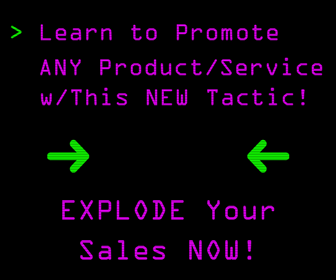When it comes to advertising, there's no bigger name than David Ogilvy.
He's a legend in the industry, one of the original mid-20th-century ad men that pioneered the entire industry and discipline of marketing.
His advice is always worth paying attention to.
He was responsible for tons of super successful ad campaigns in his day.
If you haven't read it, check out Ogilvy on Advertising. It's a must-read for any marketer or entrepreneur, and it will change the way you think about ads.
He's the ultimate master of advertising copy.
From short, pithy headlines to in-depth magazine advertorials, he's the guy you want to look to for advice if you want to learn how to write awesome copy that makes the sale every time.
In a recent blog post, Hubspot's gathered some of his best advice.
For marketers and entrepreneurs, these are words to live by, for sure.
Ogilvy recommends natural prose, a conversational attitude, and minimal jargon.
A lot has changed since the 1960s, but people are still people. Yesterday's copywriting advice still holds true, all these years later.
“Write the way you talk. Naturally.”
Ogilvy, by all accounts, was down to earth, cool.
“His latest book is called Ogilvy on Advertising. Please welcome, David Ogilvy!” said David Letterman in a 1983 Late Night interview. He reached across the table to shake his guest’s hand. Ogilvy shook back without a word.
“The book is very informative,” said Letterman. “Anyone interested in a career in advertising should certainly do themselves a favor and take a look at that thing.”
Ogilvy broke his silence. “Damn right,” he said.
Ogilvy wrote like he spoke, naturally, which enabled his success as a copywriter.
TAKEAWAY: Good writing is informal.
How to write informally:
Unless you're writing a legal document, feel free to relax your tone. Use:
- Active voice: “We have noticed that …” vs. “It has been noticed that …”
- Contractions: “can’t” vs. “can not”
- Abbreviations: “t.v.” vs. “television”
- Colloquialisms: “kids” vs. “children”
Informal writing is less cumbersome, easier to read.
“Never write more than two pages on any subject.”
Take this one with a grain of salt. While “two pages” is subjective, Ogilvy’s point is clear: never write more than is necessary on any subject.
In other words, if you can abridge an explanation without diluting the concept behind it, do it.
TAKEAWAY: Good writing simplifies complicated information.
How to simplify a concept:
The Big Short, an Oscar-winning film about the 2008 housing collapse, was almost never made because the subject matter was too technical for a lay audience. Mortgage bonds; credit default swaps; collateralized debt obligations: all these concepts required explanation …
How did the producers make it work? Cameos and stories.
Anytime a complicated concept was introduced, a celebrity would appear, armed with a quick story. What made these stories so effective and efficient at educating audiences?
Shawn Callahan, founder of Anecdote, cites several key elements
- Familiarity: The stories were told by famous people, like Selena Gomez, Anthony Bourdain, and Richard Thaler, a renown economist.
- Plausibility: The stories were credible, thanks to Thaler’s presence.
- Relatability: The stories took place in recognizable settings, like a casino or a kitchen.
Finally, the stories were metaphorical, drawing parallels between the housing crisis and losing a blackjack hand, for instance.
“If you need to explain something that is complex or highly technical to an audience that might not understand it,” writes Callahan, “then tell them a hypothetical story based on something they do understand, something that’s relatable. And pick someone to deliver the message who is familiar to the audience, someone who is like them and also has credibility.”
“Check your quotations.”
Take this one literally. As a writer, the information you distribute commands public perception over ideas and events and individuals. It’s a tremendous responsibility.
In the age of self-publishing and Fake News, an author’s integrity is paramount. Check your quotes, your facts. Readers are depending on you, trusting you.
TAKEAWAY: Good writing has integrity.
How to maintain your integrity:
Let your conscience be your guide.
“Never send a letter or a memo on the day you write it. Read it aloud the next morning — and then edit it.”
Communication rarely comes out right on the first go, especially when it’s written.
You wouldn’t give a presentation without a dry run, so why send an email or publish an article without an edit? Sure, the writing makes sense to you, the author. But only because you’re so close to it: your perspective is shot.
Distancing yourself from the work is the only way to regain objectivity, ensuring your message makes sense.
TAKEAWAY: Good writing is clear.
How to write clearly:
Richard Lanham, an English professor at the University of California, developed a system called The Paramedic Method. It's designed to help writers clarify their sentences with a simple, two-step process:
STEP ONE: Identify the problems in a sentence.
- Underline prepositions (e.g., about, to, in, across)
- Circle forms of the word “be” (e.g., is, am, are, were, was)
- Box verbs (e.g., run, hide, jump; running, hiding, jumping)
- Highlight the person or thing performing the action
- Bracket wind-up explanations
- Cross out redundancies
STEP TWO: Fix the problems you found.
- Rewrite or delete unnecessary prepositional phrases
- Replace forms of “be” with action verbs
- Put the action in the verb
- Put the person or thing performing the action into the subject
- Delete unnecessary wind-up explanations
- Eliminate redundancies
Lanham’s method streamlines the editing process. For more context and examples, click here.
You can find six more timeless tips from David Ogilvy in the full blog post from Hubspot.
CHALLENGE Yourself to Profit!
Free Download: Build Your Profit-Generating Online Business With This Free Blueprint
Sign Up, follow the easy steps and You'll get the tactics, strategies & techniques needed to create your online profit stream. It's free!



